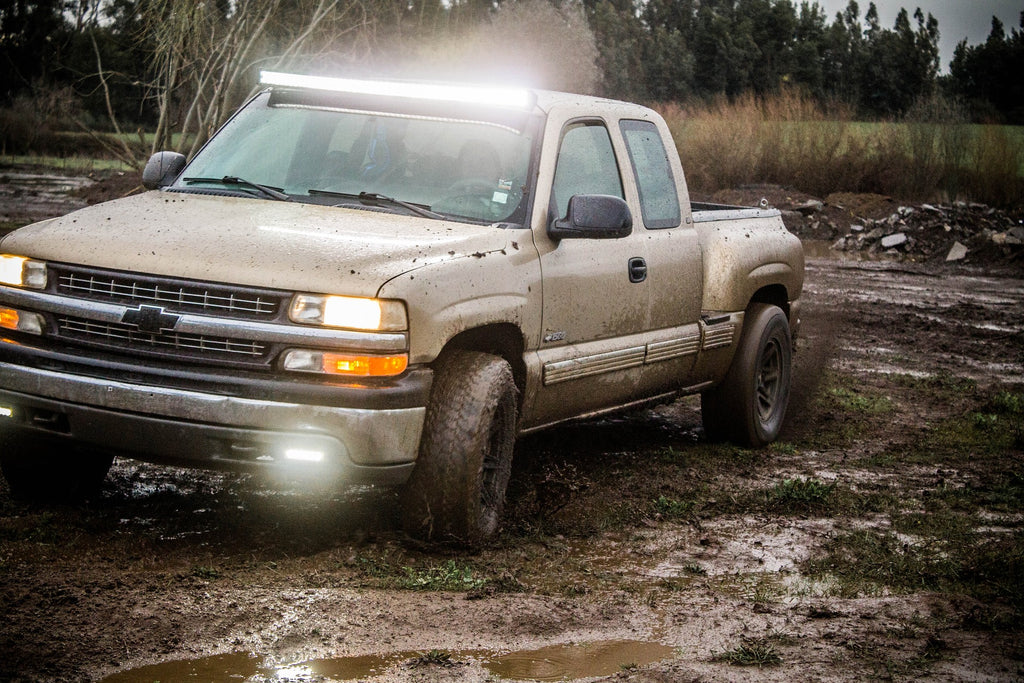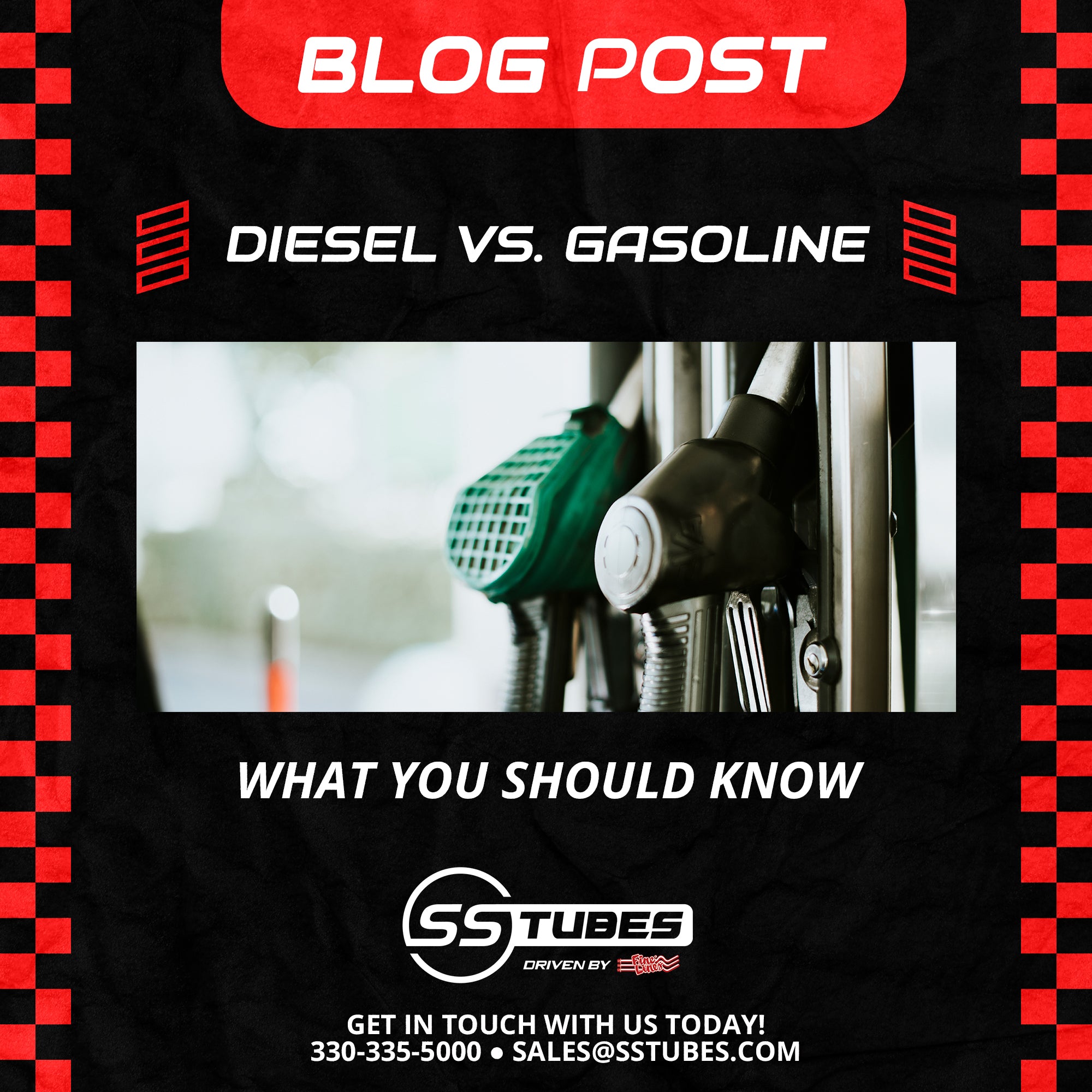 Many customers have been debating whether diesel or gasoline is the better option for their future vehicles as more international automakers offer diesel versions in the United States. Subaru, Audi, and Volkswagen are currently selling diesel-powered automobiles in the U.S. and these engines are more fuel efficient than gas-powered ones because of the type of fuel used and how that fuel is burned.
Many customers have been debating whether diesel or gasoline is the better option for their future vehicles as more international automakers offer diesel versions in the United States. Subaru, Audi, and Volkswagen are currently selling diesel-powered automobiles in the U.S. and these engines are more fuel efficient than gas-powered ones because of the type of fuel used and how that fuel is burned.
Fuel Efficiency: Diesel vs Gasoline

Image by raul olave from Pixabay
Diesel engines account for about half of the market share in Europe, despite gas cars being more popular in the States. Even though many American consumers view diesel as a “dirty” or a “lower quality” fuel, technological improvements have made it more environmentally friendly than it once was, as long you’re not out there “coal rolling”. Diesel engines do have approximately 25% higher fuel efficiency than their gasoline-powered equivalents when not towing or hauling a load but with diesel being consistently priced at least 25% more than gasoline, you are pretty much going to break even when filling up. So, if your plan is to make your bank back at the pump, I wouldn’t count on it... UNLESS you are towing something. That’s right. Your fuel efficiency could be improved by up to 50% compared to its gas-powered counterpart with the same size load.
How Motors Operate

Image by Bruno /Germany from Pixabay
Internal combustion is a technology used by both gasoline and diesel engines. With this kind of engine, fuel, and air are combined as they enter. The resulting mixture is compressed in the engine's cylinders, where it ignites and causes the piston and crankshaft to move. The final part engages the transmission of the car to turn the wheels. The piston then returns to its initial position, allowing the exhaust from the engine to be released through the exhaust pipe. Every second, this process takes place numerous times.
For gas and diesel engines, the igniting process is different, though. In a gas engine, a spark plug ignites the fuel during the compression phase. Diesel engines do not have spark plugs; instead, they create the heat necessary for spontaneous ignition by applying tremendous compression. That process is also referred to as “compression ignition.” This process requires diesel engines to be heavier to withstand that pressure.
The heavier engine means that the overall suspension of a diesel truck is far superior to a gasoline-powered truck because it must carry that extra weight. The engine and overall chassis upgrades that go into the diesel trucks do make them a lot more expensive than the gasoline versions. But they also hold their resale value through rather high miles. In fact, it’s not unusual to see a diesel truck with 250k miles selling for twice what you’d pay for the gas powered version with the same mileage.
Choosing the Right Engine For You

Image by Arek Socha from Pixabay
Customers who log a lot of highway miles frequently choose diesel engines over gas because they get better mileage when they are not stuck in stop-and-go traffic. Simply said, diesel fuel produces more energy per gallon than gasoline which improves torque, which improves efficiency.
Back to the 25% more efficient engine vs the 25% higher price of fuel. As a daily driver that’s not doing a lot of hauling and towing, a Sierra 3500 with a 7.4L 454 engine will cost about the same per mile to fill up as the Silverado 6.6L diesel. If you tow lawn care trailers, horses, large equipment, and other stuff daily, then a diesel is absolutely a better choice because you will have a heavy-duty truck designed for the task and you will save money on fuel, getting about 50% better efficiency than the gasoline.
Editor’s Note: It's crucial to keep in mind that some diesel fuels may have a detrimental effect on how well a vehicle performs. Among them are biodiesel, black diesel, and other improved diesel products.
A couple of additional things to consider; if your truck or car is not a daily driver or could sit for weeks or months at a time, then you may want a gas engine. Diesel vehicles don’t like to sit for long periods without being driven. And diesel engines can also be sluggish when it’s cold outside so if you live somewhere with long or harsh winters, a block heater wouldn’t be a bad investment.
As we mentioned, diesel engines typically have a longer lifespan than gas engines and should require less major maintenance. If you take care of your diesel engine properly, there’s no reason you shouldn’t see it eclipse 350k miles. This is important because diesel engines are far more expensive to work on. Why? Well, there are two main reasons.
- The parts are far more expensive than parts for gas engines. Because they are built to be stronger and sturdier to handle the compression and output of the diesel engine.
- There are fewer mechanics that work on diesel engines than there are mechanics for gas engines. This demand vs supply situation makes labor rates for diesel engine repair far more expensive.
Editor’s Note: Diesel engines also have fewer parts than gas engines, which implies that there are fewer potential malfunctioning parts in your car. Diesel engines often require less repair and upkeep than gas engines, which should result in repair savings over the life of your diesel vehicle.
Although early diesel engines had a well-deserved reputation for being noisy, current technology has largely eliminated this issue. If noise pollution and dark smoke were your only reservations about getting a diesel then you can probably reconsider. The driving experience you'll have today in a diesel-powered vehicle will be almost identical to that of a gas-powered vehicle.
Even though diesel fuel is roughly the same cost per mile as gasoline, if you compare the price of a diesel vehicle to the price of a gas-powered vehicle, you'll probably find that it takes a long time to break even. However, if you travel a lot of highway miles annually with a trailer in tow and intend to keep your diesel vehicle for a long time, it can make sense to spend more money up-front for the more efficient engine, especially when you take your annual fuel expenses into account.
Additionally, keep in mind that your break-even point for a diesel car will be different if you alter the proportion of the city to highway miles you drive or if you travel much more or less than you anticipated. Unless you rarely drive in the city or already operate a car that requires premium gas, drivers who travel fewer than 10,000 miles annually on average will not be able to reduce their fuel expenses to the point where a diesel engine will be financially advantageous.
Some Diesel Models that are Available in the United States.

Image by Susrut Mishra from Pixabay
Some of the U.S. cars and trucks that currently offer a diesel engine option include the following:
|
Chevrolet Colorado Chevrolet Silverado GMC Sierra Jeep Wrangler |
Ford F150 Ford F250 Ford F350 Jeep Gladiator |
Ram 1500 Ram 2500 Ram 3500 Jeep Grand Cherokee |
When it comes to diesel and gasoline engines it’s important to make sure you are only using the best parts made of premium materials. SSTubes provides Quick Fix fuel lines, prebent stainless steel fuel lines, brake lines, and more. Diesel Sierra and Silverado 2500 and 3500 are some of the most popular trucks that we carry parts for but our inventory covers the full line of Ford F150, F250, F350, and Ram 2500 and 3500 trucks, as well. If you have questions about what stainless steel lines and parts you need for your gas or diesel truck or car, contact SSTubes at 330-335-5000.

